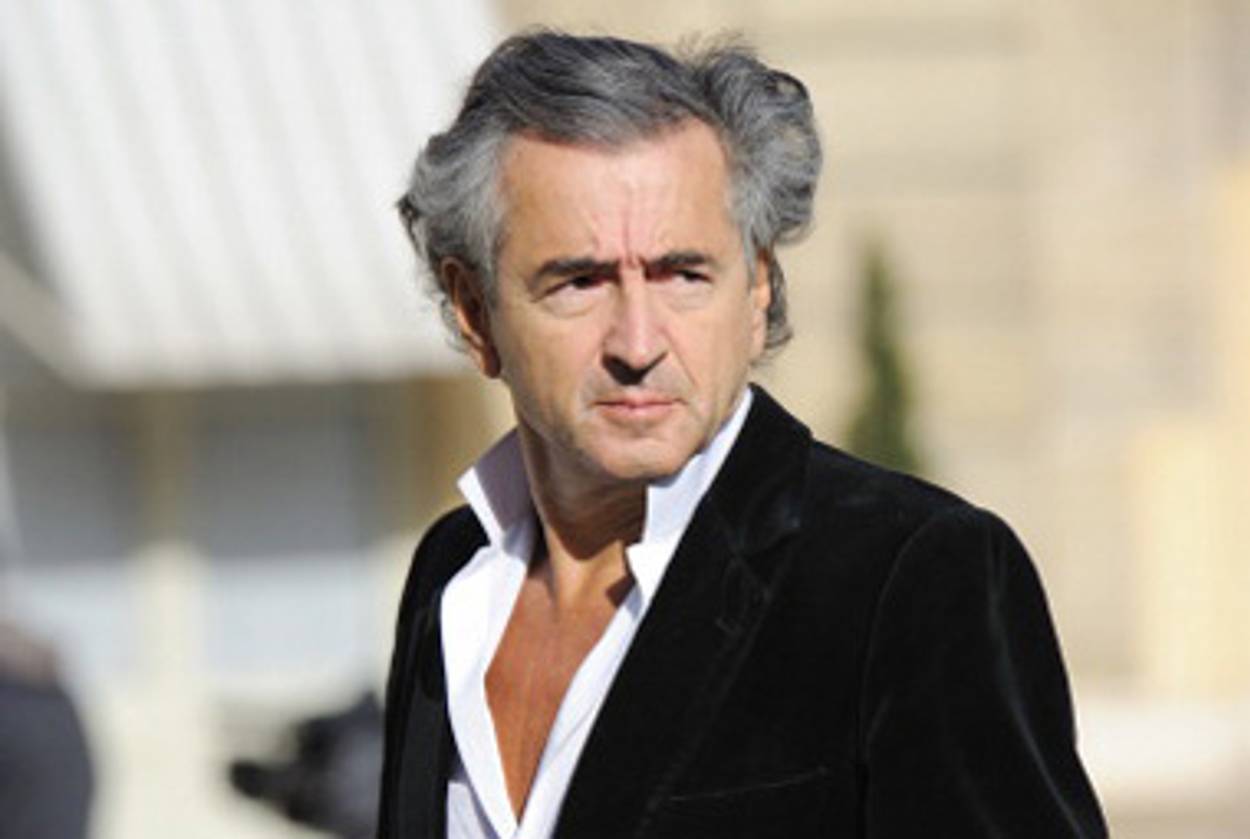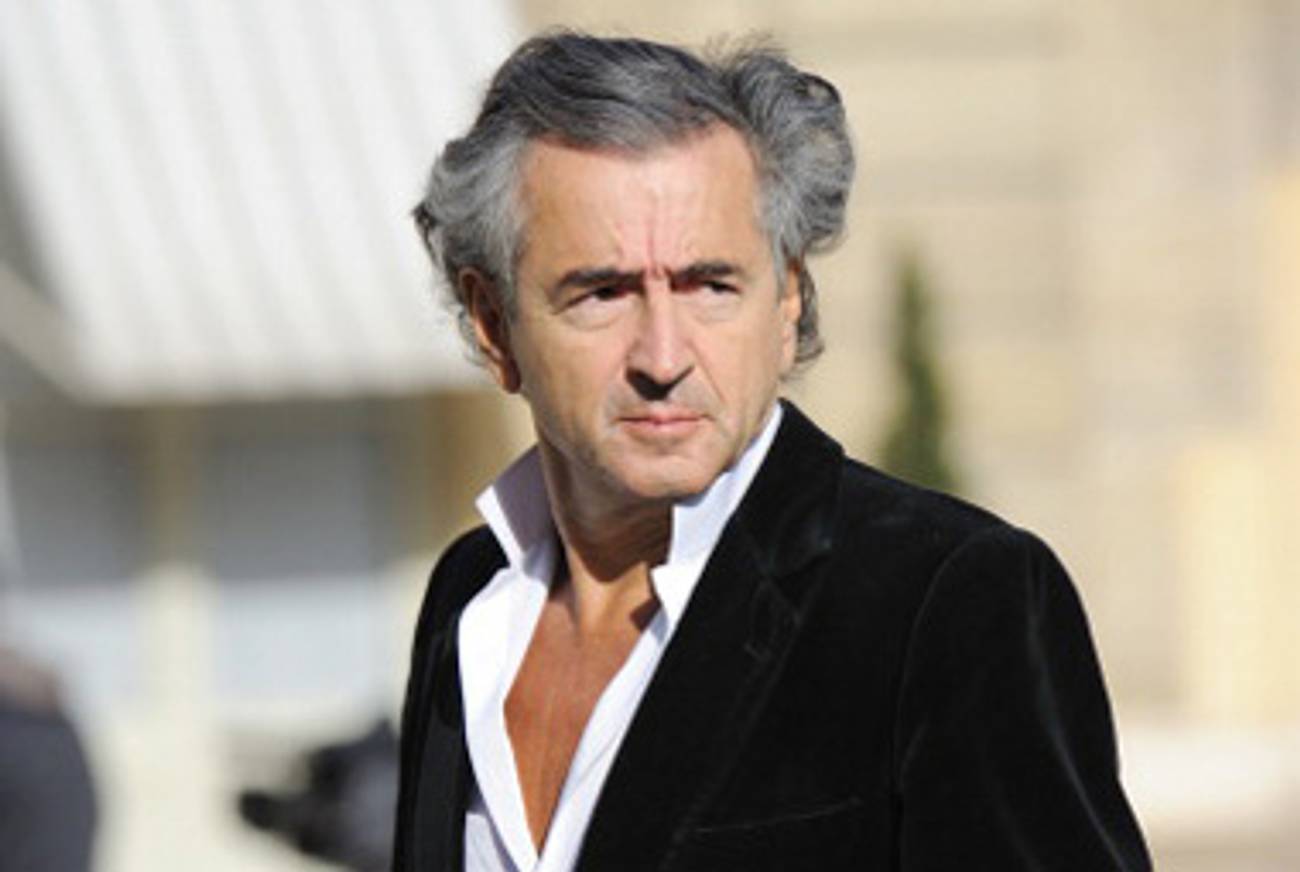What Libya Has To Do With the Holocaust
How French Boomer Syndrome made the case for intervention




Prominent French-Jewish intellectual Bernard-Henri Lévy played an extremely outsize role in fomenting the Western intervention in Libya. Specifically, the Financial Times reports, French President Nicolas Sarkozy decided to be the first and most ardent supporter of an internationally enforced no-fly zone to protect Libyan civilians and rebels in the city of Benghazi after Lévy—whose most recent book began as an open letter to the president, his friend—called Sarkozy from Benghazi and told him, in the FT’s words, “that French flags were everywhere. He told him if he allowed a bloodbath there the blood would stain the French flag.” FrumForum notes that Lévy has a history of acting the intellectuel engagé.
Meanwhile, the talk of France (besides Libya) is a book by the grandson of a prominent minister in Marshal Pétain’s Vichy government that argues that most of the entire group of Frenchmen that did not actively resist Nazi occupation—including the book’s titular “Very Nice People,” and including the author’s grandfather, who is commonly seen as heroic—share responsibility for the deportation and eventual murder of thousands of French Jews. That individuals like his grandfather committed small, brave acts to save individual Jews is nearly beside the point, the author argues. “In the end it was not at all necessary to be a monster to participate in the worst,” he tells the Wall Street Journal. “There was an anti-Semitism of the state. Men like my grandfather were prepared to do absolutely anything to preserve a little fragment of national sovereignty.” Though most have criticized the book, some Frenchmen have come to its defense: Its detractors, said one such defender, are “right-thinking conformists,” parroting a “warmed-over couplet about the Pétainist-Resistant who with one hand sent Jews to the gas chamber and with the other, claimed to have saved a few.” The speaker is, of course, Lévy.
I’d submit this isn’t a coincidence, or even, entirely, unrelated. In his masterpiece, Power and the Idealists, Tablet Magazine contributor Paul Berman writes of a generation of Frenchmen, largely mapping on to the American Baby Boomers, who grew up wondering what they would have done during the Occupation. “The militants who had fought in Spain or in the Resistance were the Series A generation,” Berman explains.
The militants of their own generation, his and Kouchner’s, had to recognize that, by contrast, they were strictly Series B. They were the generation of the second rate—the less-than-Malraux, less-than-Camus generation. The students were résistants who had nothing to resist. They pretended to resist, even so, and pretending merely aggravated their self-doubts. They dreamed, therefore. They went to the movies.
For their knowledge that their parents lived in historical times, they compensated both by policing those among their parents who behaved incorrectly and by dramatically reenacting those times with whatever new struggle happened to be at hand.
The “Kouchner” in Berman’s paragraph is Bernard Kouchner, a charter member of this group of Boomer-era French intellectuals, as well as the founder of Doctors Without Borders. Until recently, he was also France’s foreign minister—which brings us back to Sarkozy, who appointed him; and who is himself descended in part from Greek Jews; and who now, as French president, perhaps wishes, with Lévy, to avoid again staining the French flag by associating it with mass slaughter. Thus concludes your occasional lesson that the past is neither dead nor past.
Man in the News: Nicolas Sarkozy [FT]
How Bernard-Henri Lévy Started the Libyan War [FrumForum]
Vichy’s ‘Very Nice People’ [WSJ]
Marc Tracy is a staff writer at The New Republic, and was previously a staff writer at Tablet. He tweets @marcatracy.